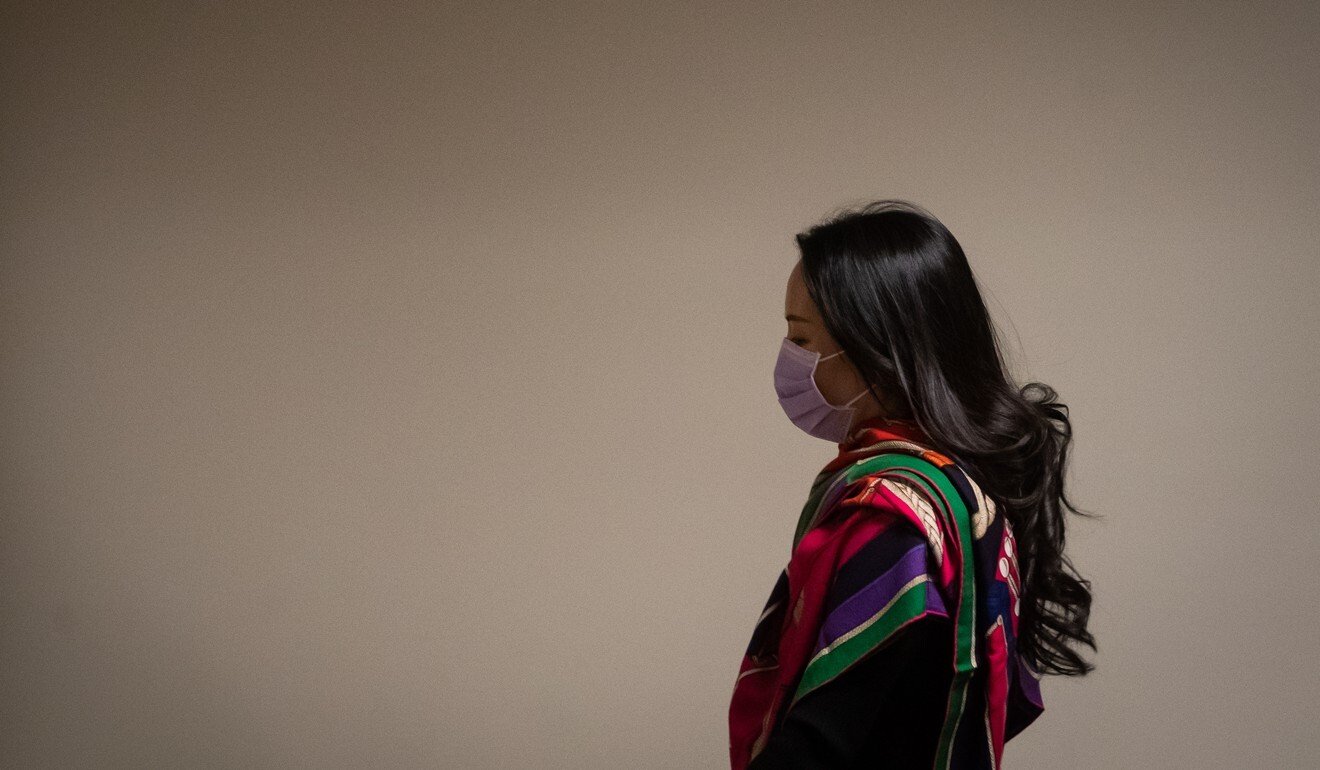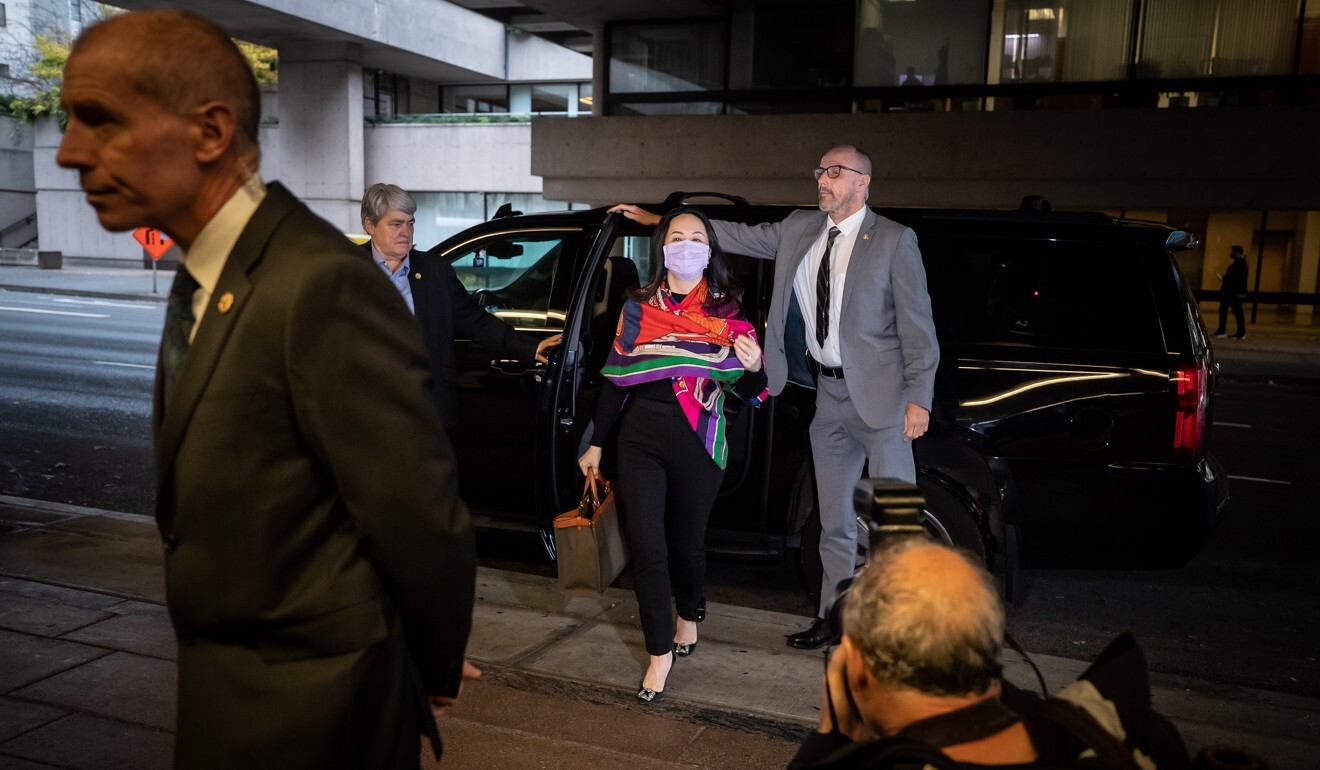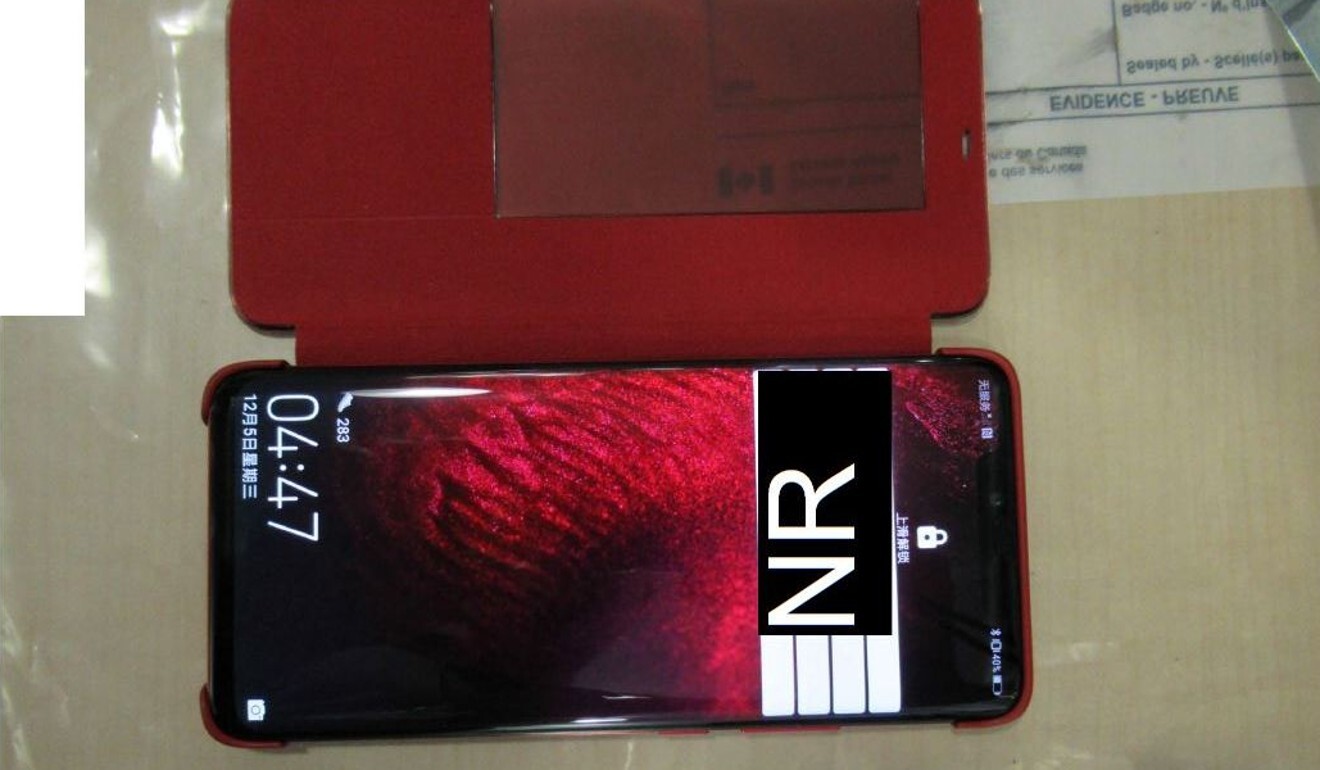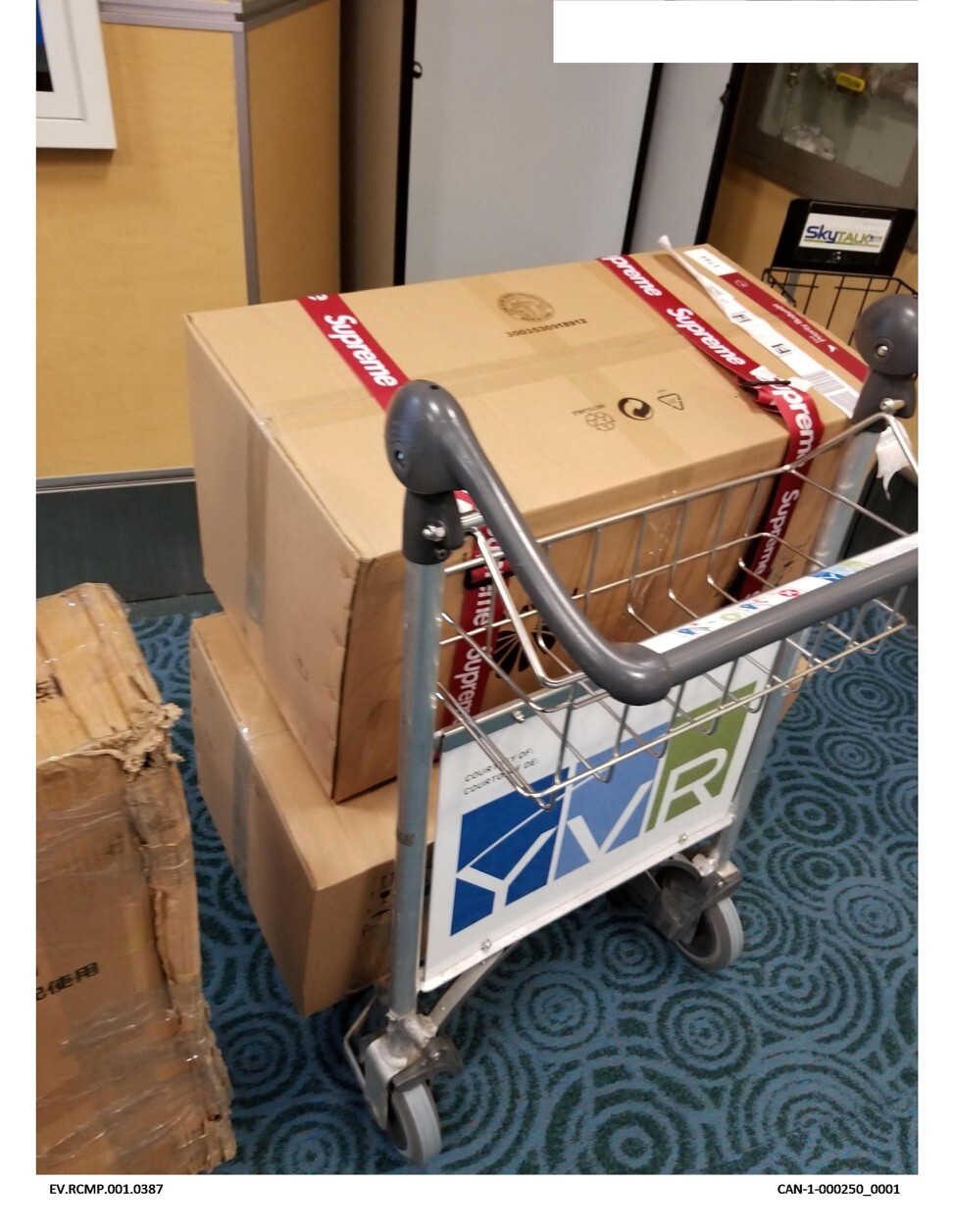
I knew we’d end up in court, says border officer who dealt with Meng Wanzhou, as judge grants Huawei executive a small win
- A judge ruled Huawei’s chief financial officer can introduce new evidence from her PowerPoint presentation to HSBC, in her fight against extradition to the US
- The decision came as a Vancouver court continued to hear witness testimony about how Meng was handled at Vancouver’s airport in 2018
Associate Chief Justice Heather Holmes of the Supreme Court of British Columbia agreed to admit new evidence presented by Meng, including portions of a crucial PowerPoint presentation she made to an HSBC executive, although other evidence was excluded.
In her written ruling, the judge also threw out an application by the Canadian attorney general to dismiss one of Meng’s arguments, that the record of the case (ROC) provided by the US is misleading and this constituted an abuse of process. The attorney general’s lawyers, representing US interests in the case, had opposed the new evidence, which was tendered to support the abuse-of-process argument.

The argument claims “the requesting state deliberately misstated or omitted material evidence in the record of the case”.
Meng, daughter of Huawei’s founder Ren Zhengfei, is accused by the US of defrauding HSBC by lying about the technology giant’s business dealings in Iran during the presentation, putting the bank at risk of violating US sanctions. She denies this.
The admission into evidence of some parts of Meng’s PowerPoint is important because her lawyers say the ROC gives an incomplete account of what she told HSBC in the presentation.
“The omission is realistically capable of establishing that the ROC’s summary is unreliable as a representation of Ms Meng’s statements to HSBC,” according to the written ruling by Holmes, released on Thursday. “Limited portions” of the other evidence were admissible, Holmes wrote.
Holmes’ ruling was made on Wednesday and published Thursday, as she continued to hear testimony from Canada Border Services Agency (CBSA) officer Scott Kirkland.
Kirkland told the court that he suggested to police that they should take immediate custody of Meng when her flight from Hong Kong arrived on December 1, 2018, worrying that a delay to allow her to be questioned by border officers might be seen as a violation of her rights.
But another border officer contended at the meeting with Royal Canadian Mounted Police (RCMP) that there was no rush to hand over Meng, said Kirkland, and the matter did not receive further scrutiny as they rushed to prepare for her arrival about one hour later.
Meng’s lawyers said CBSA officers and the RCMP were operating at the direction of the US Federal Bureau of Investigation on the day of her arrival. Instead of “immediately” arresting Meng, as her arrest warrant said, an RCMP officer waited three hours after she got off her flight, allowing Kirkland and colleague Sowsmith Katragadda to question her and seize her electronic devices and passwords.
Her lawyers said that because Meng was not told she was about to be arrested, and was not given the opportunity to have a lawyer present, this violated her Canadian Charter rights. The US bid to have her extradited to face fraud charges in New York should be thrown out as a result, they said.
Kirkland said he held these concerns at the pre-arrest meeting with police at Vancouver’s airport.
“I knew it would end up in court, yes,” said Kirkland.

But he called it a “Catch-22”: if the CBSA had indeed handed Meng immediately to the RCMP, then the border agency would similarly be accused of having failed to have done its duty.
Kirkland had testified on Wednesday that the RCMP played no role in how Meng was treated at the border exam. Nor did he have any contact with foreign law enforcers about Meng, he said.
“We made it explicit to them [the RCMP] that they were not to be involved,” Kirkland said on Wednesday.
After Meng’s Cathay Pacific flight landed at 11.10am, Katragadda intercepted her on the jetway at Gate 65, and the border exam with both officers ensued.
Canada border officer delivers blow to Meng Wanzhou’s claim of covert plot
Kirkland said on Wednesday the questions asked of Meng were purely intended to determine her admissibility to Canada, as was the seizure of her electronic devices and their passwords. He said he had national security concerns about Meng.
In Thursday’s cross-examination, Kirkland agreed that Meng had entered Canada 52 times from 2001 until October 2018. On no previous occasion had her admission been questioned, he concurred.
“But your concern on this date [December 1, 2018] was espionage,” said Duckett, which Kirkland said was “absolutely correct”.
He agreed, though, that “not an iota” of evidence was ultimately gathered in the examination to support his national security concerns.
Duckett suggested the phones were only seized because the FBI wanted them. “I don’t know if the FBI wanted those phones or not,” said Kirkland, although it was his understanding that the devices and Meng’s other luggage would be going with the RCMP after they arrested her.

Duckett questioned why, if Meng was being subjected to a normal border exam, the nature of medication she had with her was not established, nor the contents of boxes that contained household goods examined.
Kirkland expressed frustration when Duckett again suggested the examination was primarily concerned with seizing Meng’s phones for the FBI. He interrupted an objection by crown counsel representing US interests in the case.
“Let’s make this abundantly clear … All the goods in Ms Meng’s possession, whether they be electronics, they be clothing or furniture, were all going to be transitioned to the RCMP,” Kirkland said.
He added: “Whether the RCMP is going to give them to the FBI … I have no idea.”

Kirkland is the second witness in extradition proceedings being heard by Associate Chief Justice Holmes, after RCMP Constable Winston Yep, who arrested Meng.
Meng’s treatment has infuriated Beijing, sending China’s relations with Canada and the US into a downward spiral.
Beijing subsequently arrested Canadians Michael Spavor and Michael Kovrig, accusing them of spying. In Canada, their situation is widely seen as hostage-taking.

00:54
Trudeau rejects releasing Meng Wanzhou to free detained Canadians in China
Meng is under partial house arrest in Vancouver, living in one of her two homes in the city. Her extradition proceedings are expected to last well into next year, but appeals could drag out the process for much longer.
The hearing was adjourned until Friday morning.

